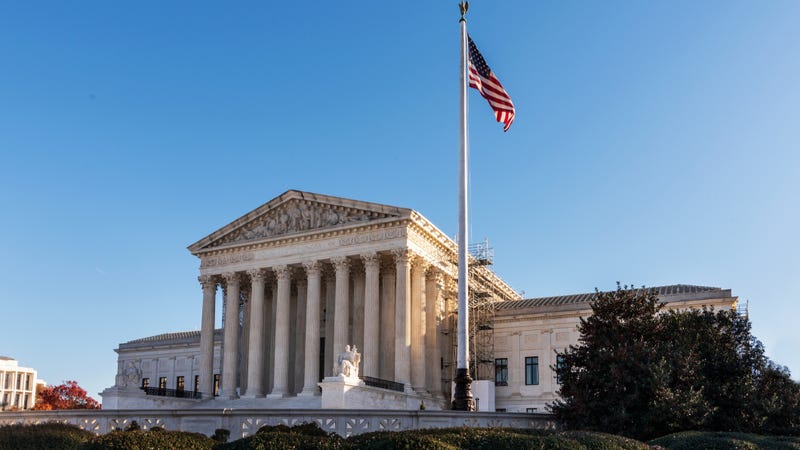
PHILADELPHIA (KYW Newsradio) — Less than one-third of Americans can name most of the rights protected under the First Amendment, and less than two-thirds can name the three branches of government. According to the Annenberg Constitution Day Civics Survey, released annually since 2014, public knowledge about the United States Constitution is holding steady — and that’s not good news.
“When we say nearly two-thirds of Americans can name all three branches of government, that means that a third can't. And if you can't name the three branches of government, you probably don't understand much of what's going on in politics,” said Kathleen Hall Jamieson, director of the Annenberg Public Policy Center at the University of Pennsylvania.
Indeed, only a little over half of adults know that Democrats control the U.S. Senate (55%) and that Republicans control the U.S. House of Representatives (56%).
The Annenberg Center released its survey results Monday ahead of Constitution Day, which commemorates the signing of the Constitution on Sept. 17, 1787. The nationally representative survey of about 1,600 adults found most Americans could name only a single right guaranteed by the First Amendment: freedom of speech, provided by 74% of survey respondents.
“But people are less familiar with freedom of religion, 39%; freedom of press, 29%; the right of assembly, 27%; and right to petition, only 11%. That's basically one out of 10,” Jamieson said, “and petitioning the government is part of the way in which you get reform.”
About 22% named the right to bear arms, which instead is protected by the Second Amendment.
The survey, Jamieson says, is an attempt to remind the public of our rights guaranteed by the Constitution, and that understanding how our system of government works is important. If citizens don’t know they have a right, they can't exercise it, cherish it or protect it.
“Understanding what your rights are at some points protect you, importantly — but also if you understand the fundamentals of the Constitution. What is a veto? Why do we have a veto? We have three branches. There are checks and balances.”
Schools are supposed to teach kids about the Constitution on Sept. 17, but Jamieson says adults could stand to brush up on their knowledge, too.
“We tend to think that educating about the Constitution and about civics is the job of the schools, but it's actually the job of all of us. It's the job, in particular, of parents — because on a day-to-day basis, the values that we inculcate come not only from schooling, but from the environment in which we're raised.”

This year’s survey also showed strong public support for several potential reforms to the U.S. Supreme Court. Annenberg has found that confidence in the U.S. Supreme Court dropped from 68% to 46% from 2019 to 2022.
Over 80% of Americans support prohibiting Supreme Court justices from participating in cases in which they have “personal or financial interests.” And nearly as many people (77%) support creation of a formal ethics code allowing for investigations into justices accused of a violation.
Among survey respondents, 69% support requiring retirement for justices by a certain age, and 68% support ending lifetime appointments and instead setting a specific number of years for justices to serve.
